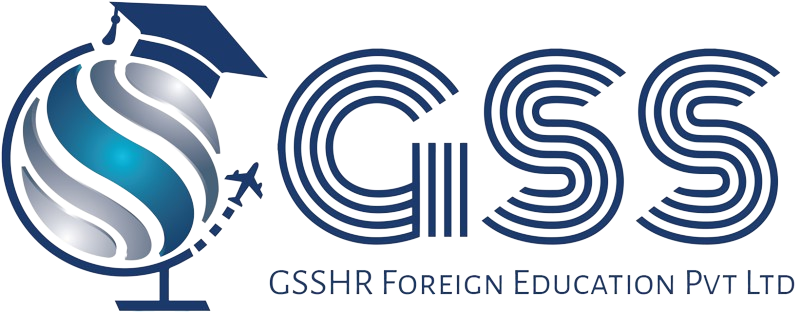
Choosing to study abroad is more than an academic decision — it’s a career move. For many students, a foreign degree translates into stronger resumes, bigger networks, and clearer access to global job markets. This article breaks down study abroad career outcomes across five high-impact sectors — Technology, Finance, Healthcare, Research, and Hospitality — and gives practical steps you can take to maximize your career outcomes of a foreign degree.
Why a foreign degree changes the job market equation
An international education influences employability in five practical ways: access to world-class labs and companies, exposure to multicultural teams, internship & co-op opportunities, strong alumni networks, and often easier pathways to post-study work permits. These components compound to improve jobs after studying abroad — but the payoff varies by sector and by the choices you make while studying.
Technology & IT — fast track to high-growth roles
- Common jobs: Software Developer, Data Analyst, Machine Learning Engineer, Product Manager.
- Why it is helpful: Technology ecosystems in countries with top-tier universities (such as AI, software development, and start-up hubs) provide students with access to internships, hackathons, and faculty-led projects that lead to portfolio-ready work inside and outside of the classroom. Recruiters often value hands-on projects, open-source contributions, and internships — all of which are typical products of an international STEM experience.
- How to maximize experience: Create a project portfolio, host code on GitHub, attend career fairs on campus, and pursue internships early. Capture measurable project outcomes for CV and LinkedIn.
Finance & Consulting — pipeline to elite recruiters
- Common job titles: Financial analyst, investment banking associate, consulting analyst, fintech product positions.
- Why it is beneficial: Most of the top business schools/universities, and even some smaller universities, will host case competitions, corporate presentations, or recruitment events led by global finance and consulting firms. An international degree such as this can benefit you in campus placement cycles and provide access to internship programs leading to full-time job offers.
- How to enhance results: Compete in case competitions, complete electives in finance, and leverage networking opportunities with alumni who have work experience in your target firms. Ensure that you tailor your CV to showcase quantifiable results for each role.
Healthcare & Life Sciences — research and specialised roles
- Common Roles: Research Scientist, Clinical Research Associate, Biotech Analyst, Regulatory Affairs Assistant
- Why This is Helpful: Programs with solid infrastructure and industry partnerships introduce students to research techniques and industry standards for clinical research and regulatory affairs, which can be different concepts in some cases, and methods and standards for the proper conduct of clinical trials and regulatory standards. If your career goals include biotech, pharma, or clinical research, you will find that the lab experience and faculty collaborators you have worked with outside of Canada will be an asset that you will often stress in your applications to research jobs or to gain entry into PhD programs.
- How to Get the Most Out of This: Make sure you work with faculty labs where you are able to contribute to papers or posters of research. Also, look for a co-op or intern opportunity in the industry or in clinical research practice. Then you can feature those technical laboratory skills on your CV.
Research & Academia — building a scholarly trajectory
- Typical positions: PhD student, research assistant, postdoctoral researcher, academic fellow.
- Why it is helpful: International institutions are often more financially secure, offer improved networking/partnership research prospects, and are more accessible to conference travel. For example, New Zealand universities are often in a better position to facilitate travel to conferences in Australia. Supervisors with global connections can facilitate joint publications and multi-institutional research more easily, and these projects are important components of an academic career.
- How to leverage: Develop a formal relationship with your advisor, collaborate on papers, and present at conferences. Think about your research niche that is clear, and indicate any potential publications in your applications.
Hospitality, Tourism & Services — hands-on global experience
- Common positions: Hotel management trainee, events manager, customer experience lead, tourism operations analyst.
- The advantages: Hospitality programs abroad will generally involve classroom education and industry work placements in hotels, resorts, and event companies. Exposure to international guest types enhances cross-cultural service competencies, and it is typical for programs to provide internships with recognized hotel chains or tourism operators.
- To get the most: Get an internship, if possible, learn another language, and track service metrics in some tangible way to demonstrate the benefit to those you would work with in the future.
How to interpret “outcomes” — an ROI checklist
If reviewing an international degree program ROI, try this quick checklist:
- Placement %: The percentage of graduates receiving relevant employment within 6 – 12 months.
- Average starting salary localised by country and sector.
- Internships are built into the program.
- Strength of alumni network – engaged alumni increase referrals.
- Ability to secure work permits for the host country to work after graduation.
Ask for a report on placement and alumni stories on the program page – they are the clearest indicators of the realistic career outcomes international students can expect.
Actionable checklist: Maximizing jobs after studying abroad
- Apply early for internships: Apply during your first or second semester—there is no substitute for experience.
- Get involved in student societies and competitions: Being in leadership positions, as well as receiving awards, works as a strong signal for employers.
- Publish and present (for research and health): Co-authorships, no matter how small, position the student for academic credibility.
- Network: Connections can be built with alumni sites, as well as LinkedIn, to develop contacts before graduation.
- Utilize career services: Engage in click this for resume checks, practice interviews and speaker series with employers.
- Provide a measurable portfolio: Apply numbers to whatever you have done in the form of revenue generated from your work, efficiency gains or volume of research outputs.
These steps will lead to career outcomes from the possibilities created by studying abroad.
Conclusion
A foreign degree can meaningfully enhance your career trajectory — but the benefits depend on the program you choose and the choices you make while studying. Focus on internships, publishable work (if relevant), networking, and measurable accomplishments to increase the ROI of your international education.
Ready to evaluate programs that lead to strong sector-specific outcomes? Book a FREE counselling session with GSS Foreign Education to get a personalised plan for Tech, Finance, Healthcare, Research or Hospitality roles.

